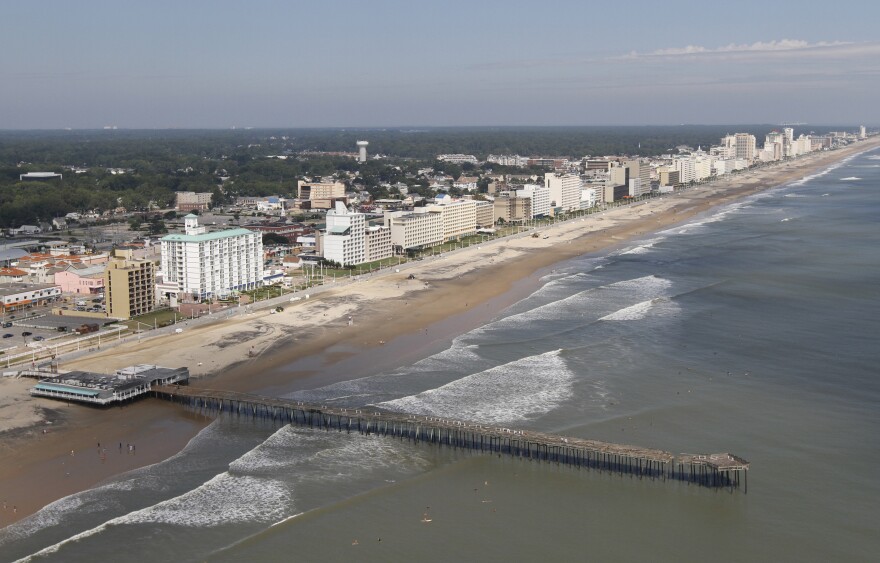A new study estimates that one in 50 people across the coastal United States live on land that’s expected to disappear by 2050. This is more than had earlier been predicted because it combines sea level rise predictions with another problem—sinking land.
Subsidence occurs naturally, but humans are speeding up the process by pumping water, oil and gas.
And while these numbers are grim, researcher Manoochehr Shirzaei points out, some of the worst impacts don’t have to happen. "It’s possible to avoid those outcomes," Shirzaei said.
Compared with sea level rise, which is difficult to stop once temperatures reach a certain level, sinking land, also called land subsidence, can be slowed in a relatively short amount of time, Shirzaei said. It can even be reversed. But that requires we extract less water, gas and oil, and invest in costly engineering techniques.
Shirzaei directs a team of graduate students at Virginia Tech who have been working for several years to project what sinking land could mean for coastal regions. In this latest study, they tracked 32 cities along the Gulf, Atlantic, and Pacific coasts.
Gulf cities, like New Orleans and Biloxi, are most impacted by land subsidence, as well as Virginia Beach.
"Land is subsiding at a very fast rate, up to a centimeter per year, in some of the coastal cities," Shirzaei said.
The research also looked at who will be most impacted. People from racial minority groups and those with lower incomes are more likely to live in areas at risk of flooding. They’re also less likely to have access to resources to recover after flooding.
The study was published in the journal Nature.
This report, provided by Virginia Public Radio, was made possible with support from the Virginia Education Association.


